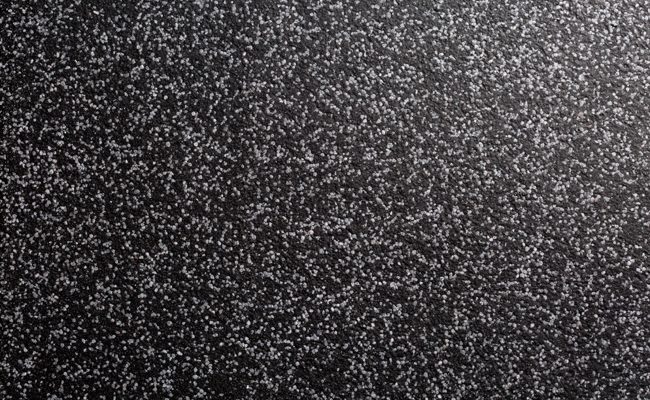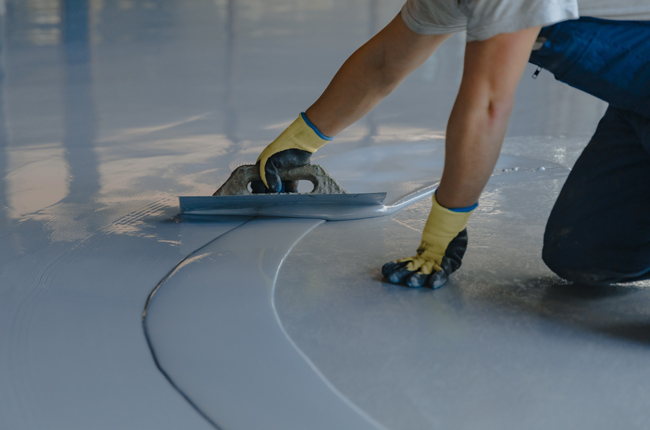
Resin flooring was almost exclusively used in industrial buildings. However, this is no longer the case, as it has also found its way in residential houses, with homeowners preferring them over laminate and polished concrete. What made it such a popular option, and what are its pros and cons? Read on to find out.
Versatility
Resin flooring is quite versatile in that it can be used for various spaces in your home or commercial building. Examples of where resin flooring is used are your kitchen, garage, patio, and driveway.
The versatility of the resin flooring also extends to how you can customize it to your liking. There are many colors for resin driveways and other surfaces you can choose from to suit your preference. When it comes to texture, you can opt for a smooth or rough finish. You can even choose a shiny, satin, or opaque finish for its final look. Last but not least, there’s also the option to add patterns to this type of flooring. Everything is possible when it comes to resin flooring; your imagination is the limit!
Durability
The installation of resin flooring requires you to lay it a few inches thick. This thickness is responsible for the flooring’s durability. Resin flooring can absorb strong shocks and distribute it evenly along its surface. This increases its lifespan because it helps prevent cracking caused by strong impacts. If you want to make resin flooring more durable, you only need to increase its thickness during its installation, depending on the amount of foot (or vehicle) traffic it’s expected to accommodate.
Affordability
With resin mainly being derived from plastic, its raw materials are easy to find, making its initial cost cheap. Besides the cheap cost of sourcing its raw materials, the manufacturing process of resin is not expensive, reducing its final price. This means getting a resin floor is relatively cheap compared to other flooring options available.
It’s also easy to install resin flooring. Unlike other options, you don’t have to remove your initial flooring to accommodate the resin floor. You can quickly pour it on the pre-existing floor without affecting its performance. Because you have control over how thick your resin flooring will be, you don’t have to worry about unsightly seams usually found around doorways. The resin will seamlessly blend with the openings for a smooth and continuous look. This ease of installation reduces the cost of labor, making it even more affordable than it already is.
Ease Of Maintenance
Resin flooring is relatively easy to maintain. This feature is attributed to its smooth, non-porous finish, allowing easy dirt removal on its surface. Thanks to its continuous finish, you don’t have to worry about seams that could accumulate dirt over time, as is often required with finishes such as tile or board flooring.
Although you’ll need special products to clean this type of flooring, these products are readily available in your local home store.
Water-Proofing Properties
As mentioned before resin flooring is made of non-porous material so it won’t absorb water or other liquids. Based on these properties, it’s pretty effective as an outdoor flooring solution, such as your driveway, which constantly gets exposed to rain, snow, and other harsh weather elements.

Resin flooring may be a great option, but you have to be aware of some of its cons. Here’s a quick look at the cons of this type of flooring:
Safety Hazard
Using resin as a stand-alone floor finish can be a safety hazard, thanks to its smooth finish. The surface can get very slippery, especially when wet. Therefore, it needs to be combined with anti-skid chemicals to prevent falls. Installing rubber strips or traction pads are also an option. Take note that these anti-slip solutions will require you to spend extra.
Prone To Wear And Tear
Although resin flooring is quite durable, with constant pressure being exerted on its surface, it’s likely to develop cracks if not maintained regularly. These cracks will allow liquids to seep through its surface, reducing the its waterproofing properties and its efficiency. The cracks will also have to be repaired, adding to your maintenance costs.
Discoloration
This is a disadvantage mainly associated where the resin flooring is used outdoors. Due to exposure to direct sunlight and UV rays, its surface could get damaged, just like your skin. This causes the surface to develop a yellowish tint. To prevent this, you have to incorporate UV-resistant coating during the installation of your resin floor.
Toxic Fumes
Some resin flooring types such as epoxy, could exude a peculiar odor. Some epoxy components emit toxic fumes that can lead to inflammation of your eyes or worsen any existing respiratory conditions, especially during (and shortly after) installation.
To avoid possible health complications, you’ll need to purchase the appropriate PPEs to protect yourself. This equipment doesn’t come cheap, adding to your expenses. At the very least, rooms with freshly-installed resin flooring have to be off-limits until the resin is fully cured and no longer exuding fumes.
Conclusion
Resin flooring has its share of pros and cons, but you have many options when it comes to minimizing its downsides. Therefore, this makes resin a good investment choice for your flooring. Don’t be left behind; consider adopt resin flooring in your home!
Leave a Reply